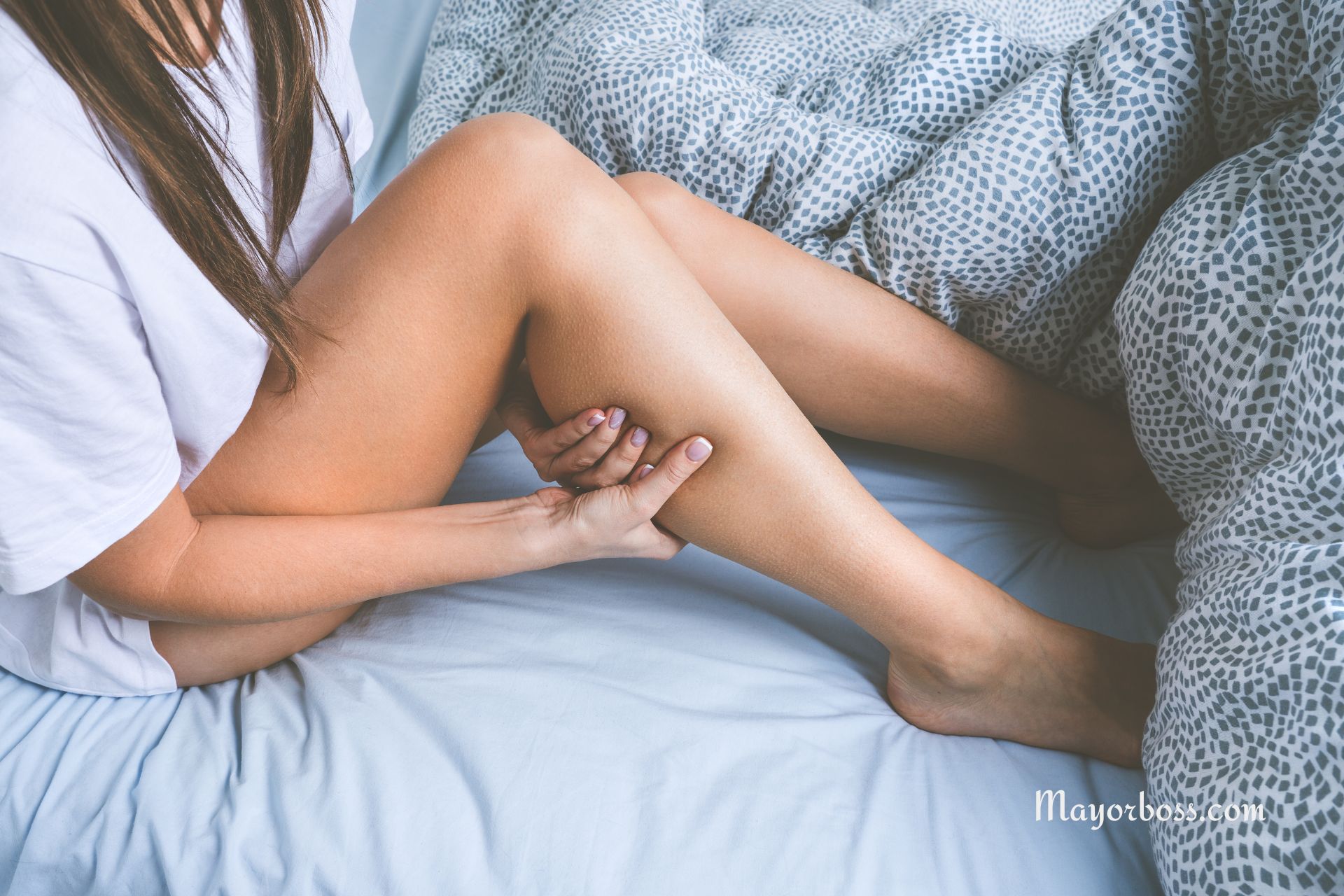5 Reasons Your Legs Keep Cramping at Night
Leg cramps at night can be upsetting. You might be resting when, all of a sudden, the muscles in your calf or foot tighten into a painful spasm. These cramps, also called nocturnal leg cramps, can leave your muscles feeling sore for a while. They may also disturb your sleep and lower your overall comfort. While it is normal to get an occasional cramp, regular or frequent cramps could point to certain causes.
According to a study published in American Family Physician, up to 60% of adults report that they have had nocturnal leg cramps. Learning about these causes can help you prevent or reduce night-time cramps.

1. Dehydration
Your body needs water to make muscles work smoothly. If you do not drink enough fluids, your muscle cells can dry out and become more likely to spasm. Sweating a lot—due to hot weather or exercise—can also lead to dehydration. If you notice that your leg cramps often happen on days when you drink less water or do intense activities, it might help to increase your water intake.
Try to sip water regularly throughout the day. When you are working out or spending time in the heat, consider drinks that have electrolytes. You can also boost hydration by eating foods with a high water content, such as cucumbers, oranges, and watermelons.
2. Overuse of Muscles
Using your muscles for a long time can make them tired. Tired muscles can cramp up because they are overworked. This issue often appears when you start a new workout routine or push yourself too hard after a period of not exercising.
Preventing Overuse-Related Cramps
Before you exercise, spend a few minutes warming up with gentle movements, like marching in place. After your workout, cool down by reducing the intensity of your movements. Stretch your calves, hamstrings, and feet to release tension. If you stand for a long time at work or during daily tasks, shift your weight from one foot to the other and take short breaks to sit or walk around.
3. Electrolyte Imbalances
Electrolytes are minerals like sodium, potassium, calcium, and magnesium that help guide the electrical signals for muscle movement. If these minerals drop too low, your muscles can become irritated and cramp. This might happen if you do not get enough nutrients in your diet or if you sweat excessively.
Aim for balanced meals that include fruits, vegetables, and proteins. Foods like bananas, sweet potatoes, and spinach are rich in potassium. Nuts and seeds are good sources of magnesium. Make sure you get enough sodium each day, but do not overdo it. If you think you have a serious deficiency, discuss it with your doctor for proper testing.
4. Poor Circulation
If your muscles do not get enough blood flow, they may miss out on oxygen and nutrients. This situation can cause cramping, especially when you are at rest, and blood flow slows down. Peripheral artery disease is one condition that might cut down on proper circulation.
Simple exercises like brisk walking or light jogging can help improve blood flow over time. Compression socks may also help by applying gentle pressure to your lower legs, aiding blood return to the heart. If you have a known circulation issue, talk to a healthcare professional about treatments or lifestyle changes that can improve your blood flow.
5. Medication Side Effects
Studies have linked certain medications, such as diuretics or statins, may bring on or worsen muscle cramps. Diuretics can make you lose vital electrolytes if you do not replace them, and statins can affect muscle tissue in some people. If these medicines are part of your health plan, do not stop taking them on your own without talking to your doctor.
If you suspect your medication causes leg cramps, speak with your doctor. They may change the drug or adjust your dose. Always work with a healthcare provider to keep up with your main health concerns while finding ways to reduce cramps.
Tips for Cutting Down Night-Time Leg Cramps
- Stretch Before Bed: Gently stretch your calves and hamstrings.
- Stay Hydrated: Drink enough water throughout the day.
- Use Warmth: A heating pad or warm compress can ease tight muscles.
- Stay Active: Moderate physical activity keeps muscles and blood vessels healthy.
- Elevate Your Legs: Raising your legs briefly might help with minor swelling or sluggish circulation.
The bottom line
Night-time leg cramps can harm your comfort and rob you of restful sleep. Common reasons include dehydration, overuse of muscles, low electrolytes, poor circulation, and certain medications. Drinking plenty of fluids, balancing your workout plan, looking after your nutrient levels, and talking to a doctor about medications can often lower the chance of these painful cramps.
